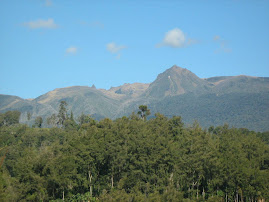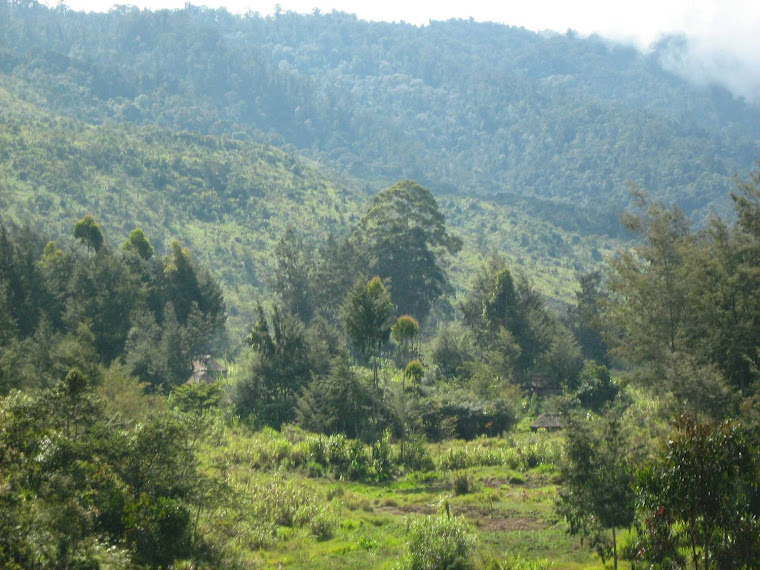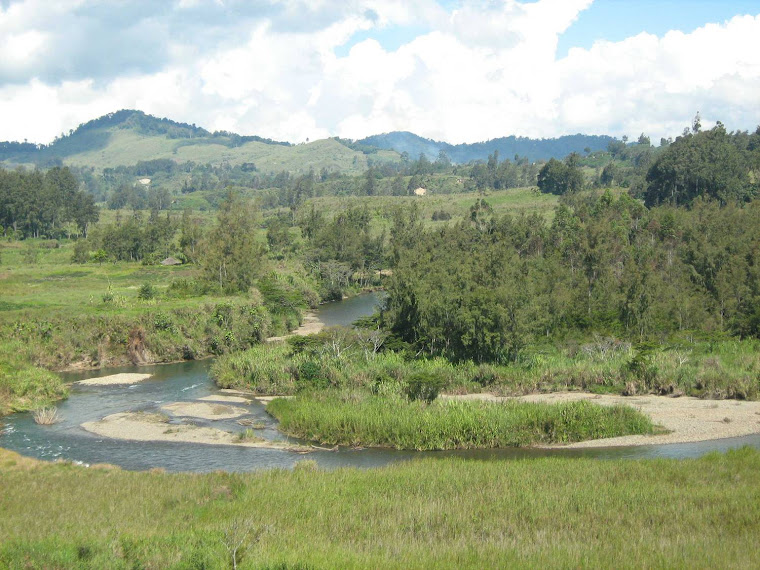Article for "Asia Pacific Perspective: China +"
...............
By Mathew Yakai
BEFORE Papua New Guinea gained political independence from Australia in 1975 and till the end of Cold War, we have seen, experienced and consumed all Western values
It started with education, to religion, governance system and ends up on the family dining table with fork, spoon and knife.
But given China’s peaceful rise today to the stage of regional and global prominence, the developing peripherals including Papua New Guinea (PNG) must change their foreign and economic policies to work along with China.
One important mechanism to realize the importance of China and accept its role in the region is to educate our populace about China in totality.
Being a product of Chinese education system in the past two years, I am compelled to see many young Papua New Guineans taking up studies in China, apart from our traditional education providers like Australia, New Zealand, USA, Britain and Japan.
For any one to study in China is a must given China’s growth today despite the global financial down turn, H1N1 epidemic, terrorism and many regional issues including the Korean Peninsula.
Thus, I am compelled to write this commentary to advise those who are interested to study in China. Stated here are my personal observations given my past experiences in China.
An email dated Monday July 27 from a potential student pose several questions on how he could accommodate his study in China.
He sought anonymity so I will use the pseudonym Malga Tais. Tais is an Eastern Highlander aged 24 and sought advice given that he is apparently granted Chinese government Scholarship to undertake Bachelor in Petroleum Engineering at the University of Geoscience (Wuhan) and is bound to leave later this month.
He is bound to do a one year Chinese language studies which is compulsory for undergraduates.
“Given your experience in China, I believe you could help me have a general perception about China – basically what I ought to know (challenges, opportunities etc).”
“Among others, my concern is how I am going to cope with courses conducted in Chinese and the cultural shocks out there. Also, the level/credential of education and the technology therewith”, Tais asked.
Chinese Scholarship Council (CSC) accepts more than 15 PNG students each year based on China’s academic calendar. Apart from Tais, am sure there will be others.
The question Tais asks could be of similar concern to others who will leave for China.
Thus, this column is proud to answer some of the questions based upon the writers’ personal experiences.
Tais’s main concerns can be specifically mentioned as follows; how to cope with courses conducted in Chinese, the cultural shocks, level/credentials of education and the technology.
Tais, your first query is how you can cope with courses in Chinese. From my experience, foreign students including PNG students are given scholarship to study as undergraduate, post graduate (masters and PhD) and other professional training and Chinese language.
CSC will specifically inform you of your study arrangement. I understand that you will do a year Chinese language studies before your major. This means that you are expected to study Chinese language for a year at a university designated in order to grasp the spoken and written capabilities.
You will later be moved to another university assigned to study your major program in Chinese language alone. Course works and lectures or instructions will be delivered in Chinese.
Chinese language is not that easy to grasp within one year. Chinese instructors and your university student office are aware of that. So after your one year language program, in most cases, they will deliver lectures in both Chinese and English until the time you are independently capable of standing Chinese language.
I have had friends who were in the same situation and they told me it was very challenging. But be assured that it will be very interesting to go through such.
Once you are accepted to go through such programs, it will be difficult to change when you are in China. Many international students have tried to change their major and study in English after they found out that lectures in Chinese was difficult for them. I suggest you discuss your situation with your lecturers and student office once you are in China so that they will help you to improve your Chinese language to cope with classes.
This may sound difficult but I can tell you that many international students have gone through. PNG students have also gone through that experience and now they are happy with where they are.
Second is the culture shock. You will face that, not with the Chinese but also other international students and foreigners you will meet at your campus. This is a rare and great opportunity for you. If this is your first time to travel overseas then take it. The culture shock in China will change your perception of the world and how to live and communicate with people of different culture, religion and ethnicity.
In China alone, they have 56 different ethnic groups and diverse culture like PNG. But the good thing is that the Chinese are very friendly people and they will always be around to help you from restaurants to train stations, hospitals to night clubs. Get there and get that shock and you will appreciate.
But let me warn you! Like any places in the world, there are also bad people in China. So be at the right place at the right time to avoid embarrassment.
You will love the place, the people, the infrastructures and many things that are in stock for you. China is a big country with long history and you will learn many things. Definitely, you will not be shocked but you will be attracted.
Third, you will come across a lot of challenges and opportunities. Now, this is a board area but I am looking at you as a student and what lies ahead for you after your graduation.
I think studying in China is a bonus for you and studying in Chinese language is a plus. Remember, China is a growing economy and you will be on the market if you do extremely well.
By the time you graduate, you are able to speak both Chinese and English. Where there is a land in the world, you find Chinese business and companies. It is predicted that Chinese language will be popularly spoken after English. More then 700 Confucius institutes are opened around the world teaching Chinese language and culture.
What an opportunity for you to go to China to live, eat, sleep, talk and study with Chinese in China. Imagine how your Chinese language capability after five or so will be like. You will be on the market with Chinese language capability, English, and your mother tongue plus your major. Tais, turn those challenges and opportunities into positive outcome.
This leads me to your final question on academic credentials and technologies. I should say that China has some of the best academic institutions in the world that are producing technologies that we use today.
Since China’s opening up and economic reform in 1978, the country has transformed itself in many ways to what it is today with Shanghai and Hong Kong being financial centers, the manned rocket sent to space recently and the spectacle Olympic Game in 2008.
Chinese brains in agriculture, IT and diplomacy are some of the best in the world. Most are graduates from Peking University, Tsinghua University and other top universities. Their government and institution train them in China and retain them and you can see where China is today.
From my personal experience, I can tell you that China’s education is focused in the current global trend. In my International Relations (IR) class, we closely look at global trend and the surrounding events, and try to use the conventional IR theories to explain and solve some of the global and regional issues.
But interestingly, the theories used today are Western traditional IR theories and do not apply to explain China’s growth and influence. So scholars and academics are working on new theories to explain China’s unprecedented economic growth.
Tais, in your respective study area, you will encounter such situation. The education system is encompassed around modern changes with historical reference and theories adopted to explain individual and specific circumstances.
After all, they will “give you the hook to fish”, and all is your responsibilities as a student.
Now I would like to provide other relevant information for you to consider before you leave for china.
Consider where you are going in terms of weather. The northern part of China is very cold and the southern part is very hot. The middle part is moderate.
In terms of food, you will love it. They have some of the delicious food in the world. Try to use chopstick too. There are western restaurants like KFC where you can visit. Foods are very cheap, depending on where you go.
Overall living expense in China is low. But if you will be in Beijing, Shanghai and most of the modern cities then I assure you that they are very expensive. Mind your spending. Beer and party will consume all your money.
Tais, you don’t need to buy new clothes and shoes etc from PNG. China will offer you quality clothes, shoes, watches, mobile phones etc on cheap and bargain prices. Take enough money with you for that. Get to the street sale and bargain your guts out. If you can not make it in Chinese then try with English. Remember, don’t show your money first before bargaining.
This is what I do. If they charge me 20 RMB then I go for 5 RMB. Their perception is that all foreigners are rich so they go triple pricing. I give them 5 RMB and show them exactly 5 RMB. They might bring it to 15 RMB or 10 RMB but I maintain my position. If they can’t accept then I pretend to walk away. They then run after me and accept the price.
Tais, this is very important. Before you leave for China, try and take some traditional costumes to promote PNG. Many Chinese don’t know much about PNG. We need you to promote our country. Take more PNG t-shirts, caps, bilums etc because you will make many Chinese friends. I experienced this.
Tais, if you have any specific questions then send them to my email address below. Others who are going to China and want to know detailed information can also email me.
In summary, China has many surprises, not only in class and outdoors but given her rapid growth today. Your education in China can open the door to your world in the future.
American movie include Fijians as cast and crew
6 years ago







